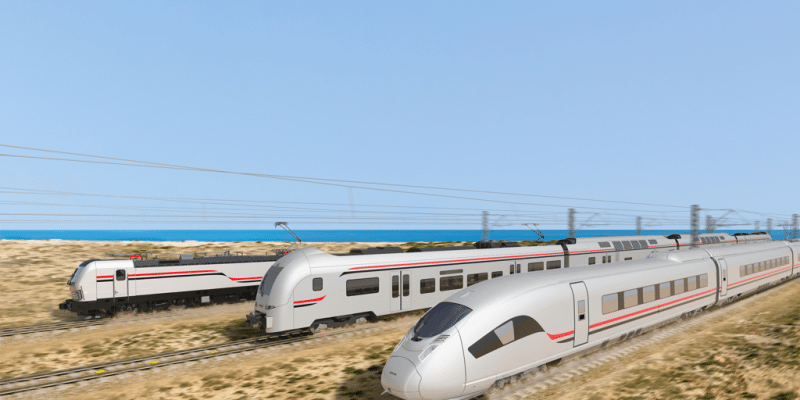Surprisingly, not even the Americans have high-speed trains yet, but Egypt will soon become the second African country, after Morocco, to equip itself with such rail infrastructure. The government of this North African country has just formalized the 15-year operating contract awarded to the Egyptian Elsewedy and German Deutsche Bahn International Operation (DB E.C.O) industrial groups.
More news on the construction of Egypt’s first high-speed train (TGV). The Egyptian government has officially awarded the contract to operate this infrastructure, on which work has been underway since 2018, to the multinational Elsewedy Electric and the German company Deutsche Bahn International Operation (DB E.C.O). The 15-year contract was signed recently in the presence of Egyptian Prime Minister Mostafa Madbouly, Egyptian Transport Minister Kamel al-Wazir, German Ambassador Frank Hartmann and Elsewedy Electric CEO Ahmed El Sewedy.
This “ultramodern” rail network will link the metropolitan areas of Cairo, the New Administrative Capital (NAC) and Alexandria. The first line, dubbed “the Suez Canal on rails”, will serve up to 30 million people by 2025. “Two additional lines and 60 stations will eventually link Abu Simbel, Luxor and the Red Sea port of Hurghada to Cairo and the rail network. Once the new network is completed, 90% of the Egyptian population will have access to rail,” says the National Authority for Tunnels (NAT).
The strategic choice of Germany for this operating contract reflects the Egyptian authorities’ desire to strengthen their technological (equipment) and human (skilled labor) cooperation with Europe’s leading power. And the DB E.C.O Group is ready to take up this challenge, which should make the land of the Pharaohs one of the few countries in Africa and the Middle East to equip itself with a TGV.
Public transport to relieve congestion in Cairo
At a total cost of $23 billion, the three lines of Egypt’s high-speed network will stretch over 2,000 kilometers. Once commissioned, Elsewedy and its German partner will be responsible for the technical management and maintenance of the installations, including track maintenance to prevent the risk of breakdowns and accidents, as well as monitoring the supply chain for equipment.
Read also-
Meanwhile, the Egyptian government is keeping a close eye on work on Cairo’s fourth metro line. This other $319 million rail project, financed by the Japan International Cooperation Agency (JICA), aims to build 16 train stations to transport 2 million people and freight in the southwest of the Egyptian capital. Ongoing investment in public transport is an environmentally-friendly alternative to polluting vehicles in Cairo, one of the most densely populated cities on the continent, with a metropolitan population of 22 million.
Benoit-Ivan Wansi







